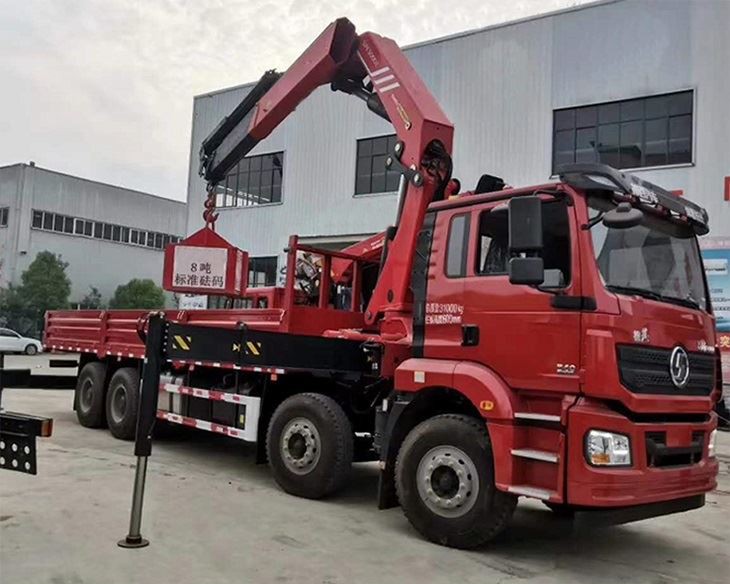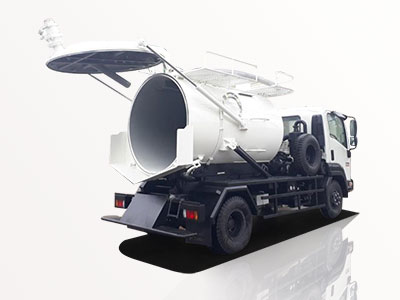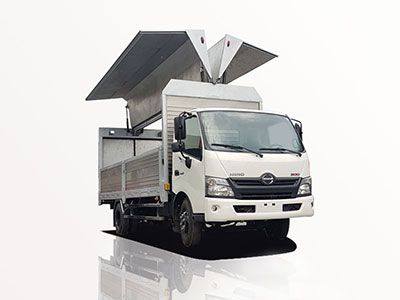Dump trucks are an essential part of construction, mining, and various heavy industries, designed to transport materials from one location to another. Their primary function is to carry and dispose of loads such as gravel, sand, asphalt, and demolition debris. Depending on the type of job and materials handled, different kinds of dump trucks are employed. This article provides an in-depth overview of the various kinds of dump trucks, their features, and practical considerations for choosing the right one for your needs.
Understanding Dump Trucks
A dump truck is a commercial vehicle used primarily to transport loose material like sand, gravel, or demolition waste for construction. The defining characteristic of a dump truck is its hydraulic bed that can be raised at the front to allow for dumping the load. However, not all dump trucks are made the same. Factors such as design, size, and functionality differentiate the kinds of dump trucks available.
The Importance of Dump Trucks in Construction and Civil Engineering
In the construction and civil engineering sectors, dump trucks play a vital role. They help in:
- Transporting materials to construction sites.
- Swiftness in waste disposal.
- Enhancing productivity and project timelines.
- Minimizing manual labor.
Types of Dump Trucks
1. Standard Dump Truck
The standard dump truck is perhaps the most recognizable type. It features an open-box bed hinged at the rear and a hydraulic lift system to raise the front of the bed, enabling unloading.
Use Cases
- Construction sites for transporting materials.
- Landscape projects requiring dirt, gravel, or sand.
- Public works projects for road repair and maintenance.
2. Transfer Dump Truck
A transfer dump truck consists of a standard dump truck combined with a trailer that carries additional load. The trailer can also be unloaded, maximizing material transportation efficiency.
Advantages
- Increased carrying capacity.
- Efficient material hauling over long distances.
Use Cases
- Long-haul projects and transportation of heavy materials.
- Multiple locations within a large construction area.
3. Tandem Axle Dump Truck
Tandem axle dump trucks feature two axles on the rear which provide better weight distribution and stability when transporting heavy loads.
Advantages
- Greater weight capacity.
- Improved ride quality and handling.
Use Cases
- Construction projects with heavy aggregates.
- Public works involving road repairs.
4. Tri-Axle Dump Truck
Tri-axle dump trucks have three axles at the back, further increasing their carrying capacity and stability. They can handle heavier loads than tandem axle models.
Advantages
- Higher load capacity than tandem axle models.
- Better traction on challenging terrains.
Use Cases
- Mining operations.
- Heavy construction projects.
5. Super Dump Truck
Super dump trucks are a newer design that features an additional axle and an enhanced payload capacity, often used for municipal projects.
Advantages
- Capable of carrying loads up to 30 tons.
- More efficient fuel consumption for large loads.
Use Cases
- Massive construction projects requiring high payloads.
- Large-scale waste management operations.
6. Bottom Dump Truck
Bottom dump trucks have a unique dumping mechanism that allows material to be discharged from the bottom, making them ideal for specific applications.
Advantages
- Faster unloading process.
- Ability to lay material in a controlled manner.
Use Cases
- Road construction for distributing asphalt or gravel.
- Site preparations where controlled pouring is needed.
7. Side Dump Truck
Side dump trucks are designed to unload their load to one side, allowing for unconventional dumping scenarios.
Advantages
- Versatility in unloading options.
- Reduced risk of material spillage.
Use Cases
- Construction sites with space limitations.
- Landscaping and material placement where precision is key.
8. Articulated Dump Truck
Articulated dump trucks are highly maneuverable vehicles that cater to off-road conditions. They are particularly effective in difficult terrains.
Advantages
- Enhanced maneuverability in tight spaces.
- Stability when traversing uneven terrain.
Use Cases
- Mining and quarry operations.
- Road construction in rugged environments.
9. Mini Dump Truck
Mini dump trucks are smaller vehicles designed for lighter loads. They are perfect for projects where space is limited.
Advantages
- Compact size for narrow sites.
- Cost-effective for smaller projects.
Use Cases
- Residential landscaping projects.
- Small repairs and renovations.
Choosing the Right Dump Truck for Your Needs
When selecting a dump truck, consider factors like the type of materials to be transported, job site conditions, and your transportation needs.
1. Project Requirements
Assess the size and nature of your project. For heavy-duty construction, a tri-axle or super dump truck may be necessary, while light landscaping can be handled by a mini dump truck.
2. Terrain Considerations
Evaluate the conditions of your job site. Articulated dump trucks are ideal for rough terrains, while standard dump trucks suffice for paver applications.
3. Load Capacity
Select a dump truck that meets or exceeds your load capacity requirements. Overloading can lead to legal issues and equipment damage.
4. Budget
Consider your budget for the purchase or rental of a dump truck, alongside operational costs like fuel and maintenance.
Maintenance Tips for Dump Trucks
Proper maintenance ensures the longevity and efficiency of a dump truck. Follow these essential tips:
1. Regular Inspections
Conduct daily inspections to check for leaks, tire pressures, and hydraulic systems. Catching potential issues early can prevent major malfunctions.
2. Keep the Engine Clean
Regularly clean the engine and replace air filters to ensure it runs smoothly.
3. Fluid Levels
Check and maintain proper fluid levels for the hydraulic system, oil, and coolant to avoid breakdowns.
4. Tire Maintenance
Check tire pressures regularly and inspect the treads for wear. Properly inflated and maintained tires can improve fuel efficiency and handling.
Cost Implications of Operating Dump Trucks
Operating a dump truck involves various costs, ranging from purchase price to ongoing operational expenses.
1. Purchase or Rental Costs
The cost of acquiring a dump truck can range from $30,000 for used models to over $200,000 for new, heavy-duty vehicles. Rental costs vary based on duration and model.
2. Fuel Costs
Fuel expenses can be substantial, with dump trucks averaging 6-8 miles per gallon. Opt for models with better fuel efficiency to save in the long run.
3. Maintenance and Repairs
Allocating a budget for routine maintenance and unexpected repairs is essential to minimize downtime and keep the truck operational.
FAQs about Dump Trucks
1. What is the difference between a dump truck and a dump trailer?
A dump truck has an integrated truck chassis and dumping bed, while a dump trailer is a separate trailer pulled by a truck that requires a separate motor vehicle to operate.
2. How much weight can a dump truck carry?
The carrying capacity of a dump truck varies, typically ranging from 10 to 30 tons, depending on the type and size.
3. Can I rent a dump truck for a single day?
Yes, many rental companies offer dump trucks for short-term rental to meet specific project needs.
4. What types of materials can dump trucks carry?
Dump trucks can carry various materials, including soil, sand, gravel, asphalt, and debris from construction or demolition.
5. Are dump trucks environmentally friendly?
Modern dump trucks are designed to be more fuel-efficient and produce fewer emissions. Electric and hybrid models are also becoming available, contributing to greener operations.


